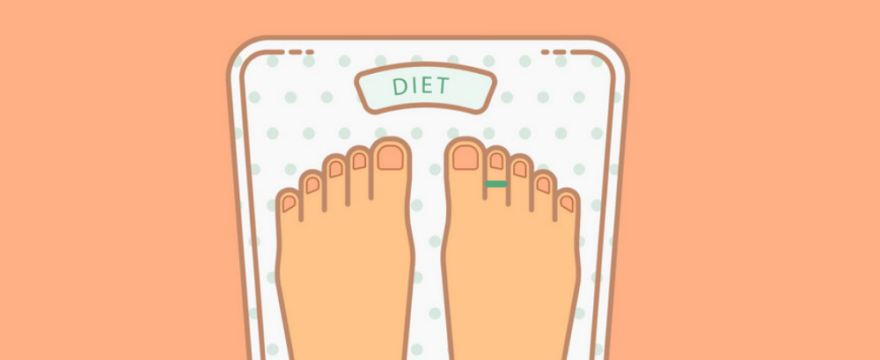Most of us step on the scales or look in the mirror from time to time.
Sometimes, this can be a helpful way to see whether our body has changed over a longer period of time.
However, these behaviours – called a ‘body check’ – can quickly become problematic if we’re obsessively checking ourselves multiple times per day.
In this article, I want to devote some time towards discussing the concept of body checking and what it means, including the type of behaviours people engage in, how they can fuel eating disorder symptoms, what the research says, and how to address obsessive checking.
Let’s get stuck into it.
Table of Contents
What is Body Checking?
Body checking refers to a class of behaviours that enable a person to assess their shape and/or weight.
The checking behaviours people engage in can vary considerably, and can range from:
- Stepping on the scales to weigh yourself
- Looking in the mirror
- Pinching certain body parts to check for fat
- Measuring certain body parts via a tape measure
- Comparing your body to others
- Checking yourself whenever you walk past a store or car window
- Feeling your abdomen to see if your ribs are visible
- Taking selfies
Each of these body checks serves some function to the individual.
They either alleviate some form of anxiety, try to confirm some pre-existing belief, or help the individual cope with some deeper emotions.
When Body Checking becomes a Problem?
Body checking behaviours can only become a problem when it’s practised obsessively.
By obsessively, I mean multiple times a day and to a point where it interferes with your ability to concentrate on other tasks, takes up too much of your time, and prevents you from living a meaningful life.
Estimates suggest that up to 25% of adult women repeatedly check their body.
Obsessive body checks can be a cause of considerable distress to an individual, but a key reason why these behaviours need to be addressed is that it can kick-start the eating disorder cycle.
There are two explanations for this.
First, body checking reinforces the overvaluation of weight and shape – the so-called core psychopathology that is responsible for driving many of the eating disorder features.
Overvaluation of weight and shape refers to judgements of self-worth that are largely contingent upon one’s weight or shape (i.e., “I am a worthy person only if I achieve this certain weight”).
Second, body checking directly encourages unhealthy weight control behaviours, like extreme dieting.
To highlight, consider this scenario, for example.
- Emily steps on the scale and drops 1kg. She’s happy that her previous diet worked – she feels like she must have done something right, so she’s even more motivated to continue her diet.
- Jack steps on the scale and his weight hasn’t changed. He’s not happy about this. He feels like he needs to diet and exercise even harder before the next weigh in to see the results he’s after.
- Alex steps on the scale and she gained 2kg. She feels very deflated because she thought she had dieted hard enough. She swears to diet even harder to make up for her weight gain.
Even though the outcome was very different (i.e., weight loss, weight gain, weight stability), the perceived solution (i.e., continue to diet) was the same across the three examples.
This example highlights how weight checking can cause restrictive eating patterns.
To recap, body checking behaviours can become a problem when practised obsessively because they can reinforce an overvaluation with weight and shape, and encourage extreme weight control behaviours.
The research on Body Checcking
A lot of research has been done investigating the role of body checking behaviours on peoples’ mental health.
A recent meta-analysis found that body checking behaviours were consistently associated with the following1Walker et al. (2018). A meta‐analysis of the relationships between body checking, body image avoidance, body image dissatisfaction, mood, and disordered eating. International Journal of Eating Disorders, 51(8), 745-770:
- Eating pathology
- Dietary restraint
- Negative mood
- Psychological distress
- Body dissatisfaction
Interestingly, an early experimental study manipulated body checking behaviour by randomly assigning students to a body checking condition (where they were asked to scrutinize their body in front of a mirror for a few minutes) or a control condition (where they weren’t asked to do this).
The researchers found that those in the body checking condition experienced significantly greater body dissatisfaction and mood problems, providing evidence that body checking can cause further mental health problems 2Walker, D. C., White, E. K., & Srinivasan, V. J. (2018). A meta‐analysis of the relationships between body checking, body image avoidance, body image dissatisfaction, mood, and disordered eating. International Journal of Eating Disorders, 51(8), 745-770.
In sum, the evidence on body checks is pretty conclusive. If practised too frequently, body checking can lead to poorer mental health outcomes in the short-term.
How to Address Body Checking
Given that body checking can be potentially problematic, it is important to touch on some evidence-based strategies that can help you address these behaviours.
1. Reduce your Social Media Usage
Body checks often occur directly after we feel concerned about our weight or shape.
Therefore, to minimize the likelihood of feeling concerned (and hence the need to check), it might be worth taking a break from social media because these platforms have the potential to make us feel bad about our body.

2. Educate Yourself
This strategy is particularly useful for those who weigh themselves too much.
Understanding natural body weight fluctuations and the factors that lead to this (e.g., water retention, menstrual cycle etc.) may help you to recognize that you need not check your weight multiple times per day because the number on scales won’t be an accurate depiction of your true bodyweight.
The urge to check your weight should eventually subside once you’re aware of how your body works and how easily weight can fluctuate.
So, take some basic physiology classes or read some research articles on this topic to familiarise yourself.
3. Monitor your Checking Behaviours
Writing down the frequency with which you check your body on a daily basis, along with why you checked, and how you were thinking and feeling, are important tips for targeting body checking.
Such monitoring can help you better understand the antecedents and consequences of your behaviour, which will provide you with the knowledge on what it is that you might need to address, avoid, or prevent if you’re to get on top of these problem behaviours.
4. Urge Surfing
In essence, body checking is an urge.
It’s used to correct or reinforce some concern you have.
Urges are like waves – once they peak, their intensity gradually declines to a point where it is not too difficult to overcome.
Whenever you get the urge to check your body, consider practising a mindfulness-based urge surfing exercise to help you ride out the urge.
References

Leave a Reply